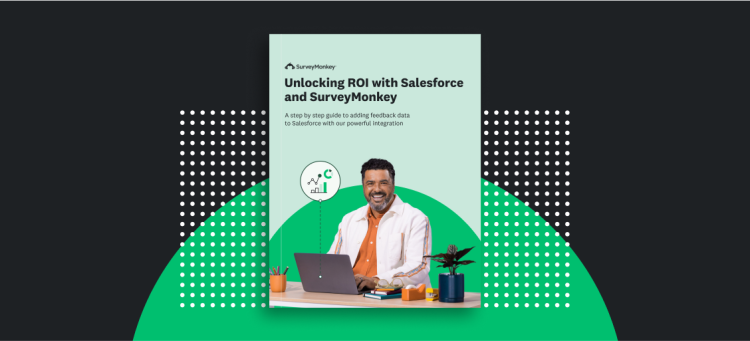“So how did you two meet?”
When you’re in a relationship, it’s almost certain that you’ll get this question in one form or another, whether it’s from your parents, siblings, friends or even colleagues.
For many, the answer is a dating site or app.
Nearly a quarter of people have used or are currently using online dating services. For young and middle-aged adults (18–44 years old), this number increases to a third.
Given the widespread adoption of dating sites and apps, we wanted to learn how people feel about them. To get some answers, we asked more than 4,000 adults – out of the more than three million people who take surveys on SurveyMonkey every day – about their perception and use of these services.
Don’t worry if your knowledge of some dating sites and apps ‘dates you’; hopefully, some of our points will still resonate.
Different generations have different views about their purpose
The aim of online dating services is to help you meet someone. But ‘meet’ carries different interpretations across demographics.
More than half of young adults (18–24 years old) consider dating sites and apps to be platforms for casual hookups. Older adults are more likely to see them as a means to help them develop short- and long-term relationships.
These different perspectives are reflected in the popularity of the dating services that people choose to use:
- 75% of young adults (18–24 years old) use Tinder, which is an app known for hookups. In distant second place (31%) comes Bumble, which is a dating app that gives women sole power of initiating conversations.
- Adults aged between 25 and 34 years old start to transition to Match.com (36%), which is the top dating site for creating serious, long-term relationships.
- 58% of older adults (45-54 years old) embrace Match.com, which is more than double the percentage of those who use Tinder.
So dating sites are popular. But does that mean people like them?
People tend to dislike online dating services
Approximately 56% of adults view dating apps and services as either somewhat or very negative, with their unfavourability persisting across age groups and gender. For example, 59% of women and 55% of men have either a somewhat or very negative opinion of dating sites and apps.
Although it’s not easy to diagnose the root cause of sentiments like these, here are two possible explanations:
1. Inherent risks when you’re searching for someone online. It can be difficult to judge someone’s character online. You miss out on things like body language, tone of voice and other qualities that can help guide your instincts and protect yourself.
Not all dating services screen for sex offenders, and fraudsters use them to steal hundreds of millions of pounds a year.
Even if the person on the other end is also indeed interested in dating, it’s easy for them to misrepresent themselves. A survey conducted by security software makers Symantec found that lying about everything from age and height to relationship status and income are extremely common.
2. Distrust in the protection of your personal information. Our survey found that only 6% of people are either extremely or very confident that these services do everything they can to protect their subscribers’ information. This results in a mere 5% of people being either very or extremely comfortable providing their personal information.
With events like the data scandal at Facebook, pessimism about the use of personal information by online dating businesses is bound to increase.
Those who have used online dating services tend to like them more
And finally, the positive news is that people who have used dating sites and apps at some point see these businesses in a more favourable light, especially if they met their partner through them.
- 58% rate them as either somewhat or very positive (78% for people who met their partner online).
- 48% are at least somewhat confident that they do everything they can to protect their subscribers’ information (58% for people who met their partner online).
- 50% are at least somewhat comfortable providing their personal information to them (58% for people who met their partner online).
As dating sites and apps continue to acquire new users, they may be able to improve their reputation over time.
Regardless of whether you like or dislike online dating services, there’s a good chance that you use them. They allow you to conveniently meet and connect with like-minded people, which can more than offset the potential disadvantages associated with their use. So next time someone asks you how you met your significant other, don’t be shy. In truth, there’s a good chance that their own relationship story will share a similar beginning.
Create your own stories based on data
Our content marketing guide will teach you everything you need to know about creating content based on original research from survey data.



